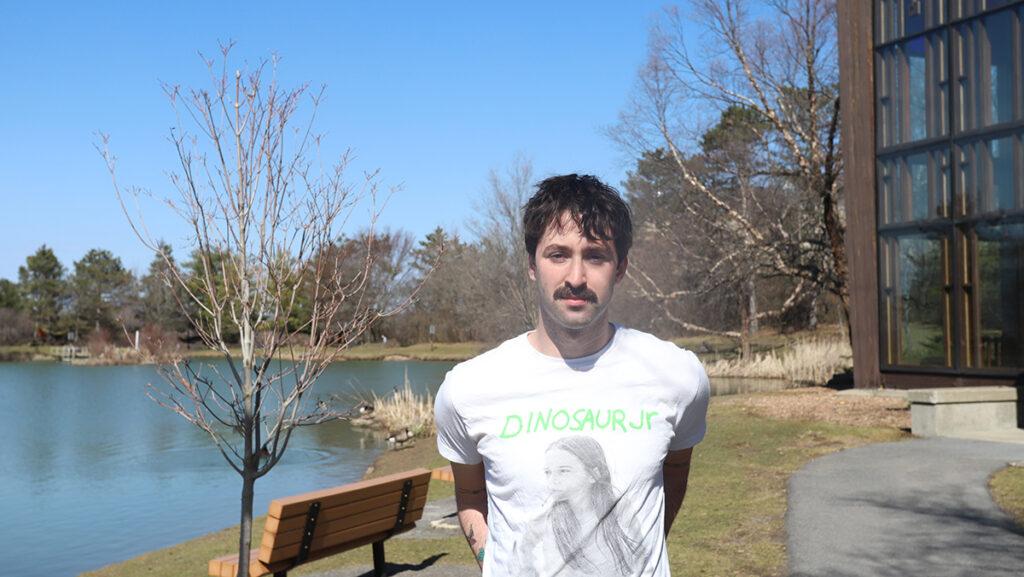Editor’s Note: This is a guest commentary. The opinions do not necessarily reflect the views of the editorial board.
The United States has a religion problem. Or, rather, it has several religion problems: Sept. 11 and Islamic extremism-fundamentalism-radicalism-fanaticism, Jan. 6 and Christian nationalism, the Israeli-Palestinian conflict and Zionism and so on. The issue, however, is not Muslims, Christians or Jews. Nor is it the respective beliefs, doctrines and practices associated with these groups. Rather, the problem is that most Americans fundamentally misunderstand religion and the role it plays in our lives today.
The first misunderstanding — defining religion. If I asked you to define religion, I would guess that your answer would include at least one of the following terms: faith, belief, worship, spirituality, God, heaven, hell, salvation, purpose, meaning, inner peace or truth. There is nothing necessarily wrong with any of those things. Yet, you may recognize that all of these terms betray a particular perspective — a Protestant Christian perspective. This makes sense, given that seventy percent of Americans identify as Christian. Again, this fact alone is not problematic. What is problematic, however, is that people hardly identify the particularities of how they think about religion. To the extent that is true, Christianity seems natural, neutral and normal. The effect is that everything and everyone else may come to be seen as abnormal. This can explain the antisemitic suspicion of Jews, the hostility toward Muslims, the exotification of Buddhism and Hinduism and the designation of Mormons, Jehovah’s Witnesses and Scientologists as either cult followers or cult leaders.
The second misunderstanding — the relationship between religion and secularism. In religious studies, secularism denotes a public sphere (ostensibly) free from religion. However, the public sphere often reflects Christianity more than it indicates an absence of religion. The consequence is, again, the normalization and naturalization of Christianity. This does not seem especially disconcerting at first glance, but considering 33% of Americans think that the U.S. is a Christian nation, 45% think the U.S. should be a Christian nation and 54% have never heard of Christian nationalism, there is cause for concern. The role of Christian nationalism in giving rise to the events that took place on January 6 should evidence the power of Christianity in the U.S. Collectively, we should endeavor to recognize the pervasive presence of Christianity in the U.S.
The third misunderstanding — religion is an opponent of progress. The most prominent example of this is the belief that Islam is, one, incompatible with modernity, and two, necessarily harmful to women. Even within progressive circles, Islam is represented as an obstacle to women’s liberation. Of course, as is true of many spaces, Muslim women face violence and oppression. However, it seems to me that the public discourse surrounding Muslim women and conversations about religion and progress, in general, are frequently one-dimensional; commentators on religion are often given to generalizations. In my experience, people are much less concerned with recognizing the complications and nuances of religion than they are with other social phenomenons, like race, gender, sexuality. As a result, we miss out and brush over meaningful conversations about the role of religion in our lives.
The fourth misunderstanding — religion is dead. Maybe you read Friedrich Nietzsche in Intro to Philosophy, or maybe you read Richard Dawkins’ “The God Delusion,” or maybe you watched any of the myriad Atheist vs. Christian debates on YouTube and you’ve come to believe that religion is irrational, make-believe or anti-scientific. This may have led you to the conclusion that religion is dead, dying or that it should die. In any case, such notions are misinformed. Religion is a uniquely human phenomenon and thinking critically about it has been and will continue to be useful for understanding how people relate to the world. Religion, whether explicit, like organized religion or implicit, like civic religion or post-secular masculinity, informs our daily interactions with the world. Thinking religiously — that is, thinking about religion — can broaden our perspectives and deepen our understandings. I think we would be better off if we all tried thinking religiously.
Aidan Feldman (he/him) is a senior Religious Studies major. Contact him at [email protected].















